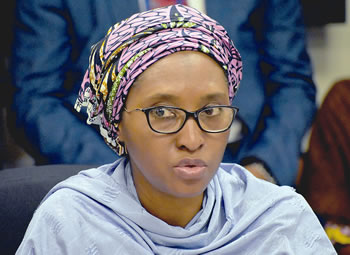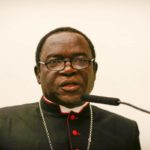Despite achieving only about 68 per cent of its projected revenue for 2021, the federal government raised its revenue projection in the 2022 budget by 32 per cent to N10.74 trillion from 8.12 trillion in the previous year. SULAIMON OLANREWAJU looks at how the government intends to scale up its revenue generation as well as the implications of failing to generate the envisaged sum.
While signing into law the 2022 Appropriation Bill christened ‘Budget of Economic Growth and Sustainability’ at the Presidential Villa, Abuja penultimate Friday, President Muhammadu Buhari had expressed concern over the changes introduced in the budget by the National Assembly.
In a statement signed by his Senior Special Assistant on Media and Publicity, Mr Garba Shehu, the President had said, “The changes to the original Executive proposal are in the form of new insertions, outright removals, reductions and/or increases in the amounts allocated to projects.
“Provisions made for as many as 10,733 projects were reduced while 6,576 new projects were introduced into the budget by the National Assembly.
“The cuts in the provisions for several of these projects by the National Assembly may render the projects un-implementable or set back their completion, especially some of this Administration’s strategic capital projects.”
Though the distortions which the changes introduced by the National Assembly should be a cause of concern to the President, Nigerian Tribune findings revealed that the President has more reasons to be worried than the changes introduced by the lawmakers because from all indications, the government may fail to deliver on some of the projects listed for completion in 2022 due to poor revenue generation.
At the presentation of the 2022 approved budget in Abuja last Wednesday, Minister of Finance, Budget and National Planning, Mrs Zainab Ahmed, was ecstatic about the revenue generation performance of the country in some aspects as she said that for the first time, Federal Government’s independent revenue surpassed the N1 trillion mark.
According to her, “We have now for the first time surpassed the one trillion mark collection for independent revenues. N1.104 trillion was collected as at November 2021 against a budget target of N973.41 billion.”
She added, “The steady improvement of our independent revenues over the years reflects the performance of our growth initiatives.”
Similarly, non-oil revenue, at N1.62 trillion at the end of November, surpassed the N1.488 trillion projected for the year.
However, despite the good tidings from both independent and non-oil revenues, as of November 30, 2021, the total revenue generated by the federal government was N5.51 trillion, which falls short of the N7.4 trillion prorated for November and the N8.12 trillion projected for the year. Meanwhile, the government had expended N12.56 trillion (about 94.1 per cent) of the N13.57 trillion budget as of November. Despite this, the government, in the 2022 budget jacked up its revenue projection to N10.74 trillion. This is 32 per cent higher than the N8.12 trillion projected for 2021 and almost double the total revenue generated in 11 out of the 12 months in 2021.
The breakdown of how the revenue would be realized as provided by the Finance Minister shows that the government expects to generate N3.36 trillion in 2022 from oil revenue as against the N2.01 trillion projected for 2021, out of which only N970 billion (less than 50 per cent) was realized as of November 2021. Similarly, the government hopes to receive a dividend of N8.3 billion from the Bank of Industry (BoI) in 2022 despite not getting any dividend from the bank in 2021 and hopes to realize N305 billion from Education Tax Fund, despite not earning a dime from the fund in the just concluded year.
From Company Income Tax (CIT), the government projects a revenue of N909.3 billion, which is N227.5 billion higher than the N681.7 billion projected for 2021. The FG plans to rake in N316.7 billion from Value Added Tax in 2021 as against the N238.4 billion projected for 2021. From its share of the Federation Account Levies, the FG hopes to pull in N71.97 billion, which is N11.4 billion higher than the N60.5billion projected for 2021. From its share of oil price royalty, the federal government expects to generate N96.94 billion in 2022 despite not earning anything from oil price royalty in 2021. The Federal Government projects a revenue of N3.3 trillion from Government Owned Enterprises (GOEs) in 2022, which is N1.132 trillion above the N2.173 trillion projected for 2021. Similarly, the government projects to earn N2.21 trillion from independent revenue, the figure is more than double the N1.061trillion projected for 2021.
From all indications, achieving the 2022 revenue target would be herculean for the government. While it is true that crude oil prices are on the rise and this may mean more revenue for the government, the undeniable fact is that the prices of crude oil were high for most part of 2021, yet the government was able to achieve just 53 per cent of its targeted revenue from crude oil sales. If the government found it difficult to achieve its 2021 target of N2.01 trillion, how does it hope to achieve a target of N3.36 trillion in 2022? The situation may even be worse if the government is unable to go ahead with its planned total removal of subsidy as the rising prices of crude oil would mean an increase in the landing cost of PMS in Nigeria and a higher sum to be paid on subsidy. Even if the government is able to remove subsidy, its plan to pay 40 million Nigerians monthly transport subsidy of N5,000 each, which amounts to N1.2 trillion annually, will consume the bulk of what would be saved from the exercise. So, how will the N3.36 trillion target be realised?
While it is true that there has been an improvement in revenue collection in the area of CIT, VAT and independent revenue, increasing expected share of revenue from Customs by over 64 per cent, while that of VAT and CIT is increased by 33 per cent each shows the government’s level of optimism. It is not also clear how the government wants to achieve the increase in expected revenue from GOEs from N2.1 trillion in 2021 to N3.3 trillion in 2022.
During her presentation last week, the finance minister noted that the administration would introduce some measures under its Strategic Revenue Growth Initiatives to improve its revenue generation. According to her, these include “Evaluation of the process and policy effectiveness of Fiscal Incentives, including the review of sectors eligible for Pioneer Tax Holiday Incentives under the Industrial Development Income Tax Relief Act; dimensioning the cost of tax waivers/concessions, and evaluating their policy effectiveness; setting annual ceilings on Tax Expenditures to better manage their impact on already constrained government revenues; and ensuring that MDAs appropriately account for and remit their internally-generated revenue.”
The government also plans to introduce new taxes such as the one on carbonated drinks. But these measures are unlikely to increase the revenue by as much as the projection suggests.
What all these point to is that the foundation for the revenue projection for the 2022 budget is shaky and this has implications for the budget implementation in particular and the economy as a whole.
Implications
The first implication is that the budget deficit would be higher than the N6.25 trillion stated in the budget. Even as it is, the N6.25 trillion deficit is approximately 3.39 per cent of the GDP. This is slightly more than the 3 per cent ceiling set by the Fiscal Responsibility Act 2007 (FRA).
The second implication is that the government has to increase its borrowings to execute some of the projects earmarked for this year. President Buhari has repeatedly stated that he intends to complete some legacy projects of his administration before the expiration of his tenure. Given the situation, the government will have to borrow more in the course of the year to make its aspiration of completing some of the projects a reality. If the government chooses to borrow from the domestic market, it may end up crowding out other borrowers and make it difficult for those who need funds for the real sector to access as much as they want. If it looks beyond the shores of the country for its borrowings, the sum allocated to debt servicing will rise and this would swallow up available funds for development in subsequent years.
Finally, the government may decide to reduce allocation to capital expenditure. This means that the completion of some projects will have to be further delayed.
YOU SHOULD NOT MISS THESE HEADLINES FROM NIGERIAN TRIBUNE
We Have Not Had Water Supply In Months ― Abeokuta Residents
In spite of the huge investment in the water sector by the government and international organisations, water scarcity has grown to become a perennial nightmare for residents of Abeokuta, the Ogun State capital. This report x-rays the lives and experiences of residents in getting clean, potable and affordable water amidst the surge of COVID-19 cases in the state…
Selfies, video calls and Chinese documentaries: The things you’ll meet onboard Lagos-Ibadan train
The Lagos-Ibadan railway was inaugurated recently for a full paid operation by the Nigerian Railway Corporation after about a year of free test-run. Our reporter joined the train to and fro Lagos from Ibadan and tells his experience in this report…
[ICYMI] Lekki Shootings: Why We Lied About Our Presence — General Taiwo
The Lagos State Judicial Panel of Inquiry probing the killings at Lekki Toll Gate, on Saturday resumed viewing of the 24hrs footage of the October 20, 2020 shooting of #EndSARS protesters by personnel of the Nigerian Army…
ICYMI: How We Carried Out The 1993 Nigerian Airways Hijack —Ogunderu
On Monday, October 25, 1993, in the heat of June 12 annulment agitations, four Nigerian youngsters, Richard Ajibola Ogunderu, Kabir Adenuga, Benneth Oluwadaisi and Kenny Razak-Lawal, did the unthinkable! They hijacked an Abuja-bound aircraft, the Nigerian Airways airbus A310, and diverted it to Niger Republic. How did they so it? Excerpts…
Sahabi Danladi Mahuta, a community mobiliser and APC chieftain. Mahuta spoke to select journalists at the sidelines of an Islamic conference in Abuja recently. Excerpts…






